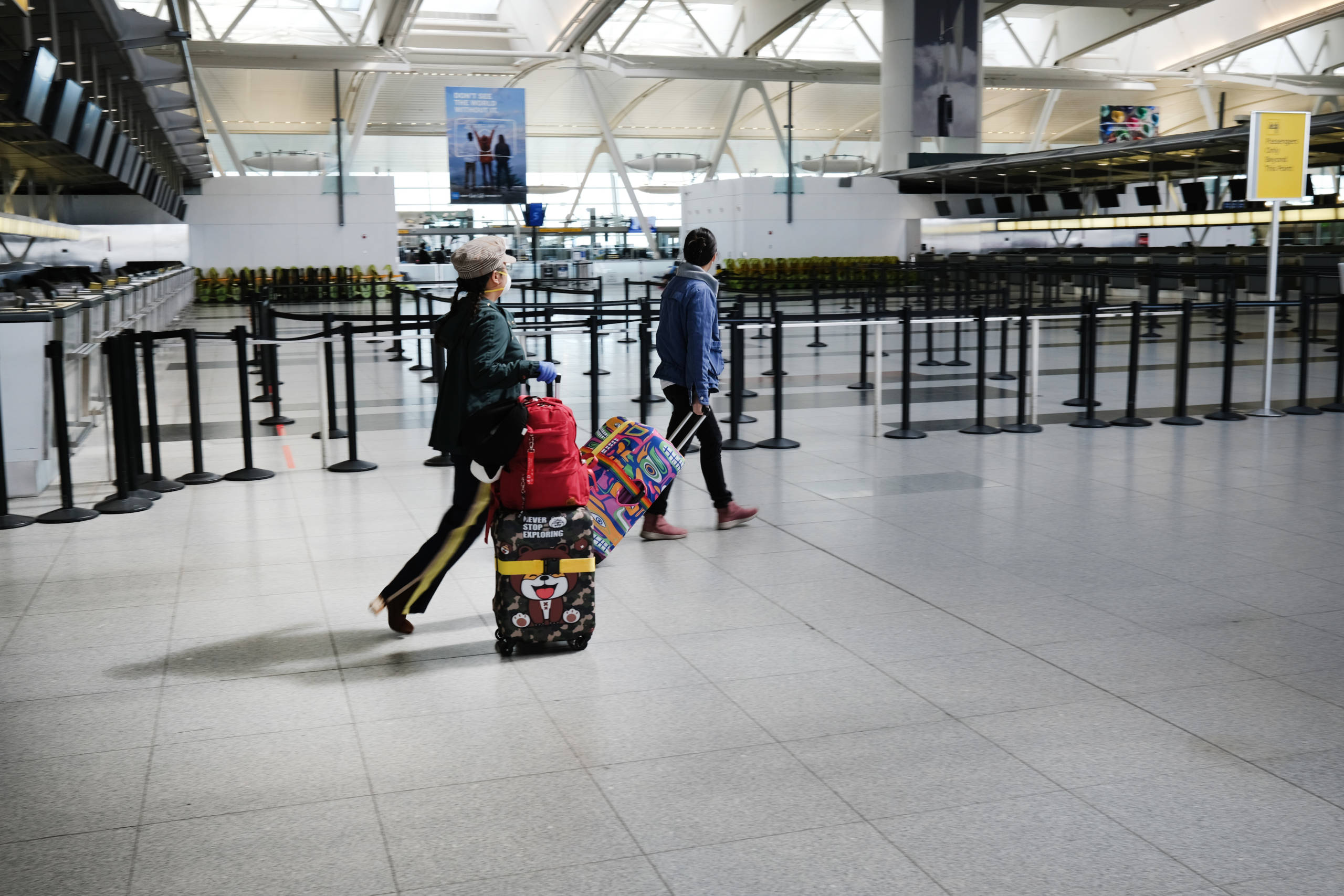Airlines had been raking in billions in fees. What will they do now?
The airline industry is going to look different after the coronavirus pandemic. It's already morphing in response to an unprecedented drop in demand, meaning changes are coming that will alter the way Americans fly.
One bit of welcome news for travelers: those change and cancellation fees that have proven especially unpopular with customers over the years may not stick around.
Sign up for the free daily TPG newsletter for more airline news.
"I personally don't see these coming back," Jay Sorensen, president of IdeaWorksCompany, an airline revenue consultancy, said in an email. "If airlines press on that issue, consumers will turn off the bookings spigot."
The industry's reliance on fees has never been higher. U.S. airlines collected a combined $5.8 billion in checked bag fees in 2019, according to the Bureau of Transportation Statistics. Significantly fewer people flying means that revenue stream — just like traditional revenue from airfares — has likely all but dried up in recent months.
With coronavirus, however, airlines have had to rethink nearly everything about their business models — everything from schedules to those seemingly ubiquitous fees.
Many airlines have already issued broad policies waiving cancellation and rebooking fees during the pandemic, in an effort to boost consumer confidence and generate some customer goodwill. Sorensen said the change and cancellation fees are generally not as lucrative as more traditional "ancillary revenue" sources like checked-bag fees, but that they still represent a meaningful income stream for carriers in tough times.
Read more: A guide to cancellation and change waivers at most major airlines.
But not everyone is convinced they'll go away.

Brett Snyder, who runs the Cranky Flier blog and Cranky Concierge service, is less optimistic that these fees are going to be permanently relegated to the past.
"They will likely have to stay suspended until there's a vaccine, herd immunity, or treatment. But after that, I would expect them to return, possibly sooner at a lower level," he said in an email.
Meanwhile, airlines are facing significant revenue shortfalls, leading to rapid changes in the way many carriers do business.
With passenger traffic down 90% or more from last year, carriers are, of course, selling fewer tickets. They're also collecting far less money in fees.
Related: Is air travel on the rebound? TSA reports a week of passenger growth.
That's almost certain to be a novel issue for the revenue management teams at most U.S. airlines after their record haul in 2019. Sorensen said the loss of income from fees presents a real problem for airlines as they struggle to stay aloft.
"There is nothing that will make up the revenue shortfall. Airlines are going to have a completely challenging year. I don't think the objective is to find lots of revenue, but rather to find a combination of policies that will get people flying again," he said. "You might see some airlines experimenting with fee boosts, as we did with American on the transatlantic. I think airlines overall will be very timid. However, I don't see airlines waiving a la carte fees."
If anything, Sorensen predicted, airlines may introduce new ancillary fees in an effort to bolster their finances once people start flying more regularly again.
Related: How cobranded credit cards may help airlines recover from coronavirus.
He said passengers should prepare themselves for the possibility of paying for carry-on bags, even with non-basic economy tickets on legacy airlines like American, Delta and United.
"Lots of carry-on bags are a disaster for the boarding and deplaning process in terms of time and passengers congesting the aisle. Time is precious as airlines need more of it to disinfect aircraft," he said. "The solution is to ban roll-on bags, and other carry-ons, in the manner of Spirit and Allegiant. I've flown those airlines and find the process amazingly unencumbered. I believe the majors could then bring back carry-ons, but charge a fee."
Related: Airlines add new rules as call for masks on planes gets louder.
Snyder seemed to agree that broader carry-on bag fees are a possibility.
"The airlines have shown in previous crises that they are willing to slap together a revenue-generating idea without thinking it through fully," he said. "If they think that they have a fee that will raise money fast, they'd consider it. Then they'll deal with the fall-out down the line."
Whatever changes are eventually implemented, the coronavirus-related struggle for airlines is likely to persist, especially if demand for travel remains low for an extended period.
Read more: What Boeing's next moves say about the slow resumption of travel.
In that case, Sorensen said, no new fees or policy changes will make up the shortfall on airlines' balance sheets. "The only option I see is significant losses," he said, suggesting a bleak remainder of the year for the industry. "If a carrier believes they will break even before the end of 2020, I think that's a mistake."
Featured Photo by Spencer Platt/Getty Images.
